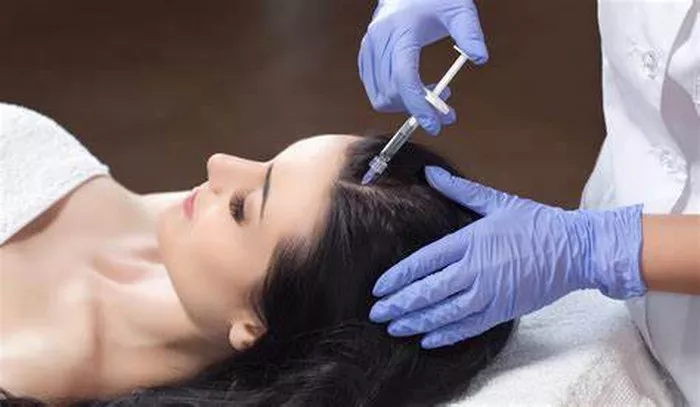As the conversation around hair loss expands, dermatologists are calling for more inclusive research and treatment options, particularly for underrepresented populations in the African diaspora. Dr. Crystal Aguh, MD, FAAD, a faculty member at Johns Hopkins School of Medicine, is one of the leading voices urging increased grant funding to support diversity in hair disorder studies. Dr. Aguh, a specialist in hair loss, highlighted the American Academy of Dermatology’s (AAD) commitment to addressing hair loss in minority communities, noting the substantial progress made with targeted research grants.
The Need for More Research Funding
Dr. Aguh stressed that the inclusion of underrepresented populations in hair loss research is paramount, particularly for communities of African descent, where hair holds deep cultural significance. “Grant funding is crucial,” Aguh explained. “As funding for research on hair loss in underserved communities has increased, so has the number of publications and the attention given to these critical issues.”
The AAD has been proactive in supporting this research, establishing awards specifically designed to fund studies on hair loss in minority populations. The results from these initiatives, Dr. Aguh noted, have been impressive and are paving the way for better understanding and treatment options.
Balancing Cultural Expression and Hair Health
For Black women, the decision to wear protective hairstyles such as braids and weaves often comes with a trade-off in hair health. Dr. Aguh, who frequently sees patients experiencing traction alopecia—a form of hair loss caused by constant tension from tight hairstyles—underscored the challenge of balancing cultural expression with the preservation of healthy hair.
“Curly hair is naturally fragile and requires significant care,” she said. “Many of my patients choose braided or weaved styles for convenience, but these styles can lead to permanent hair loss if not managed carefully.”
Dr. Aguh dedicated time to educating her patients about hair care practices and the potential risks of certain styles. “I spend a lot of time on social media doing patient education because once women understand how to balance these hairstyles with proper hair care, they can achieve better outcomes,” she added.
The Emotional Toll of Hair Loss
The emotional impact of hair loss in the African diaspora cannot be overstated. For many Black women, hair is a symbol of femininity, pride, and cultural identity. Losing it can feel like losing a part of oneself. Dr. Aguh shared that in the African American community and the broader African diaspora, hair is often referred to as a “crown.” Losing that “crown” can lead to profound emotional distress, as it is not just a physical feature but a key element of cultural expression.
“The quality of life impact from hair loss is significant,” Aguh explained. “We know from cancer literature that 10% of breast cancer patients will refuse chemotherapy because of the prospect of losing their hair. Imagine what that means for patients dealing with chronic forms of alopecia, which can be far more difficult to treat.”
In her clinic, Dr. Aguh takes a compassionate approach to addressing the emotional and psychological effects of hair loss. She spends considerable time educating other dermatologists and healthcare providers about the importance of acknowledging the emotional toll on patients and respecting the cultural context of hair loss.
“Nothing is more rewarding than helping patients regrow their hair,” Aguh reflected. “When you’re able to make a positive change in someone’s life, especially when it comes to something so deeply personal as their appearance and identity, it’s truly fulfilling.”
Moving Forward: The Path to Inclusive Research and Care
Dr. Aguh’s work highlights the need for ongoing research and awareness to ensure that hair loss treatments are inclusive and tailored to the unique needs of underrepresented populations. As more funding is directed toward this critical research, dermatologists hope to make significant strides in developing treatments that address the specific causes and effects of hair loss in Black women and other marginalized communities.
By continuing to prioritize inclusivity, educate patients, and raise awareness, the field of dermatology can better serve all populations, ensuring that hair care and health treatments are both culturally sensitive and effective.
Related topics:
- Anok Yai: Redefining Beauty Standards on the Runway
- Study Reveals Dangerous Chemicals in Popular Synthetic Hair Brands
- Best Foods for Hair Growth and Strength: What Experts Recommend


